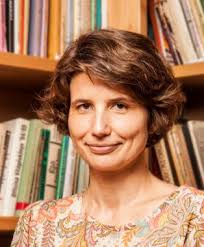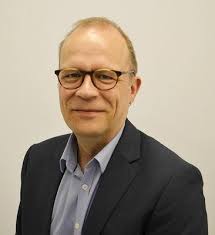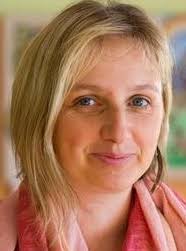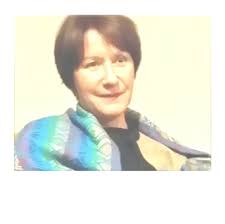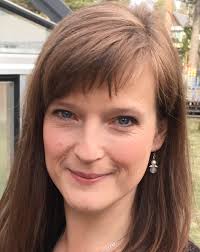New pre-conference venue on 9th of May at Tallinn University (aula)
Narva Road 25, 10120 Tallinn
Marte Meo video based developmental programm -“simply” look and see.
Ilona Buša
Systemic family therapist, Systemic supervisor, Marte Meo method licenzed supervisor, EFTA-NFTO board member
Workshops for specialists, who are looking for cognitive and practical tools in different problem settings with families and children. Will be possible to hear and to see successful working model in consulting work.
Marte Meo method is first to identify, and than to activate and develop supportive communication skills for parents and specialists which enable constructive interaction and development in daily life. From 2003 Marte Meo opened development in my systemic family therapist work with clients and trainees. In workshop I will show some video moments and for participants will be possible see how to make interaction analysis, to read developmental message behind behaviour and get ideas how to develop supportive communication and not fall in problem trans. Since 1987 Maria Aarts developed Marte Meo programmes in cooperation with many different professional groups in great number of countries, more as 30 countries.
Marte Meo method-author-Maria Aarts from Eindhoven, Netherlands, Marte Meo International.
The Emotional Map of the Home Interview – a family therapist’s tool for intervention and research
Viola Sallay, Ph.D.
Institute of Psychology, University of Szeged, Szeged, Hungary
In the workshop I present a new family therapy assessment and intervention technique, the Emotional Map of the Home Interview (EMHI). EMHI can be used to understand the relationship patterns and relational processes in the family, as well as family members’ emotion laden behaviour that occurs in the space of the family home. When used as a research tool (a semi-structured in-depth interview based on the Emotional Map of the Home), answers are analysed qualitatively according to the research question. In family therapy with EMHI, the recalled emotional experiences can also be used to build strengths as well as to modify behavioral and relational patterns.
Workshop participants will have the opportunity to make self-experience with the technique, as well as learn case study examples and practical information on the assessment and intervention with EMI based procedures. At its core, EMI is a projective method informed by systemic thinking and environmental psychology as well. When used in systemic therapy, family members are asked to draw a layout of their own home and to assign predefined positive and negative emotions to the layout according to their own experiences. The adjacent interview focuses on these emotions and on the connected emotional and relational dynamics. Workshop participants will be given detailed presentation of the interview procedure and the possible methods of working with the elicited experiences.
Couple Therapy for Intimate Partner Violence: Topics and Strategies in Successful Therapy Processes
Juha Holma
Professor, Department of Psychology, University of Jyväskylä, Finland
Despite controversy over the indications of couple therapy for Intimate Partner Violence (IPV), current research has indicated some benefits. Conjoint treatment does not seem to increase the risk of physical violence when the treatment is designed specifically for IPV and the participants are carefully screened. It has been found that in carefully selected couples the partners valued similar aspects of the couple therapy to a greater extent than expected, and reported feeling safer after participating in couple therapy for IPV. It is important to view dyadic interactions as an effort to understand both members of the couple; not as a systemic causality of violence thus allowing victim blaming. The complexity of the conjoint IPV treatment may place therapists in a challenging position. Power and dominance have a special relevance in couple therapy in IPV.
In this workshop I present some crucial aspects when dealing with couple therapy for IPV, such as how dominance and power abuse are present, and which important issues should be taken into account during the therapeutic process and be brought up in therapeutic conversations. Findings of studies conducted within the Jyväskylä Research Project on Couple Therapy for IPV highlight the importance of the therapists’ awareness of the presence of violence, dominance and power during the sessions, and of how cultural issues could prevent their recognition. Responsibility and couple agreement on the violent behavior seemed especially relevant at the beginning of the treatment. Potentially useful therapeutic strategies are directedness, use of reflective dialogue, and continuous assessment. Findings also highlight parenthood as an important theme in IPV couple therapy conversations.
Psychosomatic illness as an “open door” invitation
Mgr. Lucie Hornová
Working with children with psychosomatic illness is in our opinion like an elementary textbook of the connection between the diseases and the environment in which the child is living.
In our perspective, the goal is not to find a meaning in the psychosomatic symptom, neither to find a „cure “ as such, but to help the system to realize the solution. In this sense, we see a symptom as an opportunity or an „open door” to address the systems resources and help the coordination between the different systems involved.
The research proves that such approach reduces the financial expanses on the medical care.
But in day-to day practice we experience that the most difficult cases are those where children come out of low social class, poor or highly traumatised backgrounds. If we really want to be helpful we must be willing to address a role of a coordinator of social, medical, school (etc.) systems with the broader family system of the child.
This role brings new challenges, risks but also a deep satisfaction.
In our presentation, I would like share some of our practical experiences of how we manage to bring a presented model into our day-to day practise.
Lucie Hornova is a clinical psychologist.
Originaly, she has been working with addicts and their families on long term basis both in the UK and in the Czech Republic.
She first trained as a Rogerian Person-Centred therapist and latter on as a family systemic therapist. In 1997 she has founded a team of clinical psychologists and other professionals. They are using dialogical ideas and collaborative approaches in their work. The team is based in a hospital environment and is dealing wide spectrum of clients including families with high level of violence, psychosomatic illnesses and contradictory involvement of the medical system.
Lucie has a special interest in psychosomatics. She has graduated a University course in Acupuncture and Traditional Chinese Medicine.
She has graduated a Systemic Supervision Course in the Tavistock Clinic in London. She has been involved with EFTA as a national representative since 2006. She organizes together with Jaakko Seikkula, Peter Robber, Justine von Lawick, Pavel Nepustil and Matthias Ochs annual Summer School on Dialogical practices in the Czech Republic.
Lucie and her team have done a 5-year practitioner research project with TAOS institute (Sheila McNamee) researching the co-therapy qualities in dialogical approach in therapy.
Lucie also teaches clinical psychology and dialogical approaches at several universities in the Czech Rep.
She has two teenage daughters and a dog.
Synopsis for floating objects
Claudine Cany
Sometimes you can feel in difficulties with a family or a couple to name a well-identified problem to work on. They are like blind and they are hooked to their representation: it’s a dialogue of the deaf…I propose to you to enter in an analog word to be able to help the family or the couple. I will explain you and show you how use floating objects. Without words, people can do the experience of intense emotional moments which help them to change their mind and to go to the solution. With the symbols the therapist can create depth behind the surface of what is said…
Multigenerational family therapy in action
Küllike Lillestik
Psychodrama Certified Practitioner (CP)
Multigenerational family therapy can often be very frightening for therapists because they are not sure what to do when there are more than one or two generations in the therapy room. How does one remain on top of the situation, support emotional processes and lead the family safely through something that is new and uncomfortable for them?
The workshop has two goals: establishing the role of the therapist, his/her actions, self-reliance and the benefits of multigenerational therapy, and how to teach it to the students.
The workshop employs the methods of family systems therapy, psychodrama, family constellations and Imago and EFT relationship therapy.

